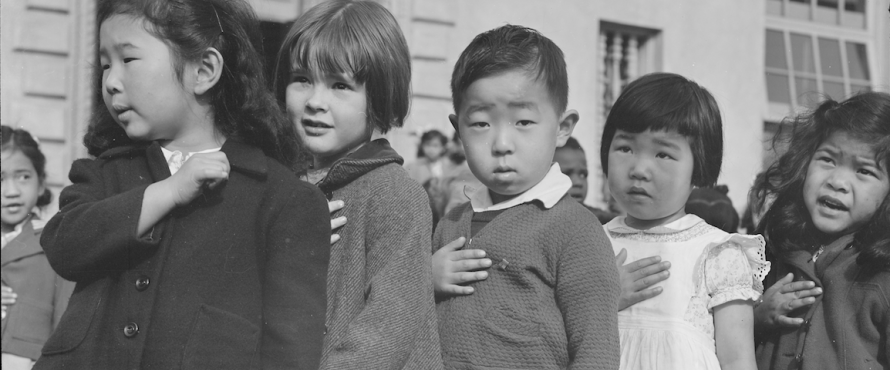Northeastern Illinois University’s Ronald Williams Library has digitally released a Japanese American Redress Collection of documents that focus on the Commission on the Wartime Relocation and Internment of Civilians (CWRIC) hearings that took place on the University’s Main Campus on September 22-23, 1981.
The CWRIC hearings investigated the legality of Executive Order 9066, a mandate issued by President Franklin D. Roosevelt during World War II that led to the detainment of more than 120,000 people of Japanese ancestry, two-thirds of whom were American citizens. Considered a threat to national security because of their ethnic background, the uprooted Japanese and Japanese-Americans were placed into internment camps and held for an average of three years. No internee was ever formally charged with or convicted of espionage or sabotage.
Northeastern’s collection, which was painstakingly digitized by Archives, Government Information and Periodicals Librarian Hanna Ahn and El Centro Library Coordinator Geoff Brown, focuses on the hearings that took place in Chicago, one of several cities that hosted CWRIC hearings. Ahn and Brown split the 823-page transcript of Chicago testimony into smaller segments in order to facilitate access to individual testimonies.
“The personal stories that came out of the Chicago hearing are heartbreaking,” Ahn said. “The digital release of this collection serves as an important resource for families, historians and members of the general public who seek first-person testimony about a dark period in our national history.”
In one transcript, a man describes the pain of losing his wife and twin girls shortly after childbirth in a California camp.
“[My wife] died in my arms,” Tom T. Watanabe testified. “For some time things were hazy and to this day, I do not remember being informed of my children’s death, when my children died. I had not even seen the birth certificate. I have since asked my sister to check and find the gravesite on her visit to Manzanar. She took a snapshot of a monument with no name written on it. Are my wife and children right out in the desert of Manzanar in an unmarked grave? This thought has haunted me all through the years.”
In another passage, an American citizen describes the pain of a conflicted cultural identity.
“After the attack on Pearl Harbor by the Japanese it became apparent that Japan was no longer a possible country for me,” Yoji Ozaki testified. “Executive Order No. 9066 denied my birthright as an American. I, along with all people of Japanese ancestry, became a person without a country.”
The results of the CWRIC hearings led to the passage of the Civil Liberties Act, which was signed into law by President Ronald Reagan in 1988. This law granted the victims of the internment a formal government apology and financial reparations for the losses they had suffered.
“By digitizing these testimonies, we aim to preserve the memories and experiences of the people who were forcibly interned,” Brown said. “As a society, it is important that we remember our most terrible failures so that we dare not repeat them.”
The collection is best viewed using the Chrome browser.
Top photo: First-grade school children in San Francisco recite the Pledge of Allegiance in 1942. (Courtesy of the National Archives and Records Administration)








